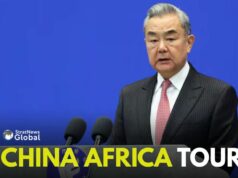South Korean President Lee Jae Myung warned on Monday that the Korean Peninsula is in a “very dangerous situation,” with the risk of an accidental clash between the two Koreas rising amid growing hostility. Speaking to reporters on a flight from South Africa to Turkey after attending the G20 summit, Lee stressed the urgent need for dialogue with Pyongyang, according to Yonhap News.
Lee said that North Korea has been refusing communication from Seoul and has begun installing barbed wire fences along the inter-Korean border an act not seen since the end of the 1950–1953 Korean War. “Inter-Korean ties have become very hostile and confrontational, and in the absence of even the basic level of trust, the North is showing some very extreme behaviour,” Lee was quoted as saying.
Seoul’s Call for Military Talks Ignored
Seoul has proposed military-level talks with North Korea to prevent accidental clashes and clarify the boundary along the Military Demarcation Line (MDL). The proposal, made on November 17, aimed to reduce the risk of armed conflict that could quickly escalate into a broader confrontation.
However, Pyongyang has not responded to the proposal. South Korea’s Defence Ministry said there have already been more than 10 incidents this year involving North Korean soldiers crossing the border, prompting South Korean troops to fire warning shots under established rules of engagement.
Push for Long-Term Peace
Lee said that achieving peace on the Korean Peninsula will require long-term commitment and patience. He also suggested that once a “firm peace regime” is established, joint military drills between South Korea and the United States could be reconsidered.
“When peace is secured, it would be better for South Korea and the US to cease joint military exercises,” he said.
Pyongyang has repeatedly condemned such drills, describing them as “rehearsals for nuclear war.” The US currently maintains about 28,500 troops in South Korea, along with advanced weapons systems, as part of its longstanding security commitment to Seoul.
Rising Tensions and Calls for Restraint
Analysts say North Korea’s border fortifications and increased military activity signal deepening mistrust between the two sides. Pyongyang has tightened its border defences and cut all direct communication channels, while Seoul continues to call for restraint and dialogue.
President Lee’s remarks highlight growing concern that continued isolation and militarisation could lead to an unintended armed clash, threatening regional stability at a time of heightened geopolitical tensions in East Asia.
(with inputs from Reuters)





